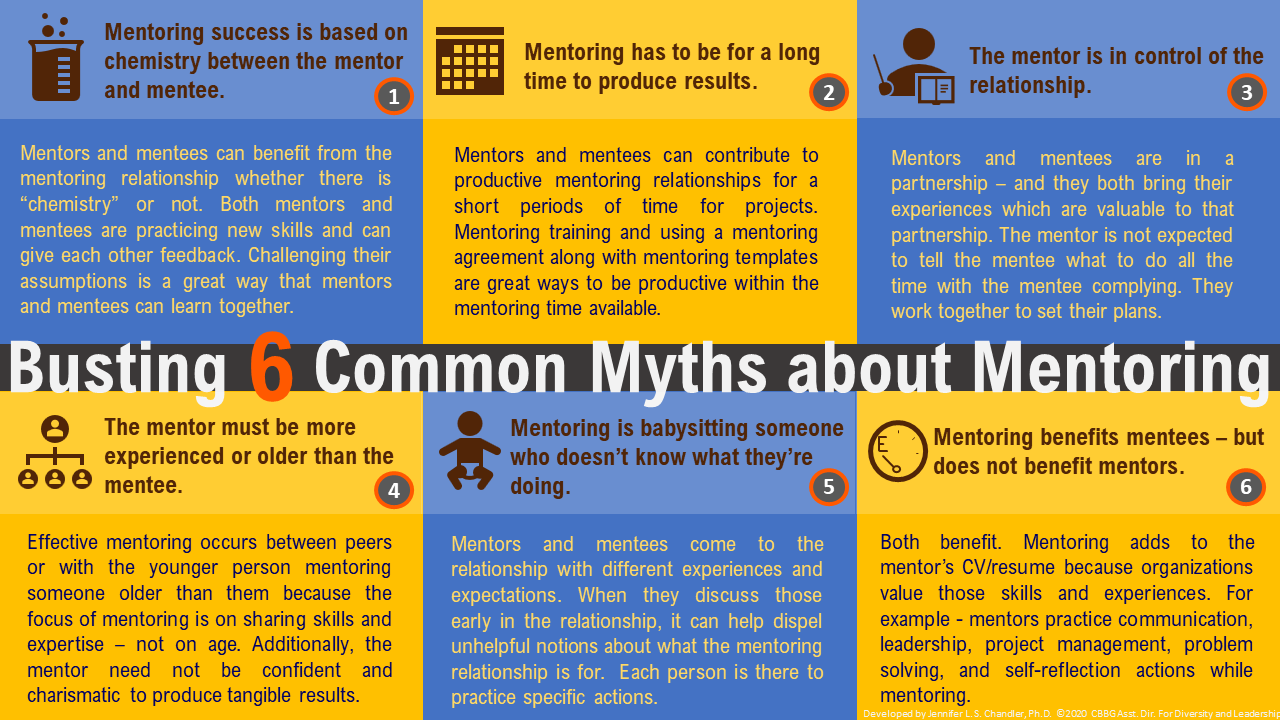6 Common myths about mentoring busted

Editor’s note: The infographic in this piece was originally created by Jennifer Chandler, Assoc Teaching Professor, Arizona State University, and has been republished here with permission.
Academic life can be challenging and highly competitive, especially for novice researchers. Mentoring can guide mentees so that they establish themselves as independent researchers. A mentor guides the mentee in establishing contacts, shares knowledge and skills, and helps the trainee with their work. They can also be instrumental in helping mentees identify opportunities and career goals.
However, there are several myths and misconceptions around mentors and mentoring. These should be dispelled in order for mentors and mentees to have realistic expectations and enjoy the mutual benefits of the mentor-mentee relationship.
The infographic below busts 6 common myths about mentoring.

6 Common myths about mentoring busted.png
You're looking to give wings to your academic career and publication journey. We like that!
Why don't we give you complete access! Create a free account and get unlimited access to all resources & a vibrant researcher community.

This content belongs to the Career Growth Stage







View Comments